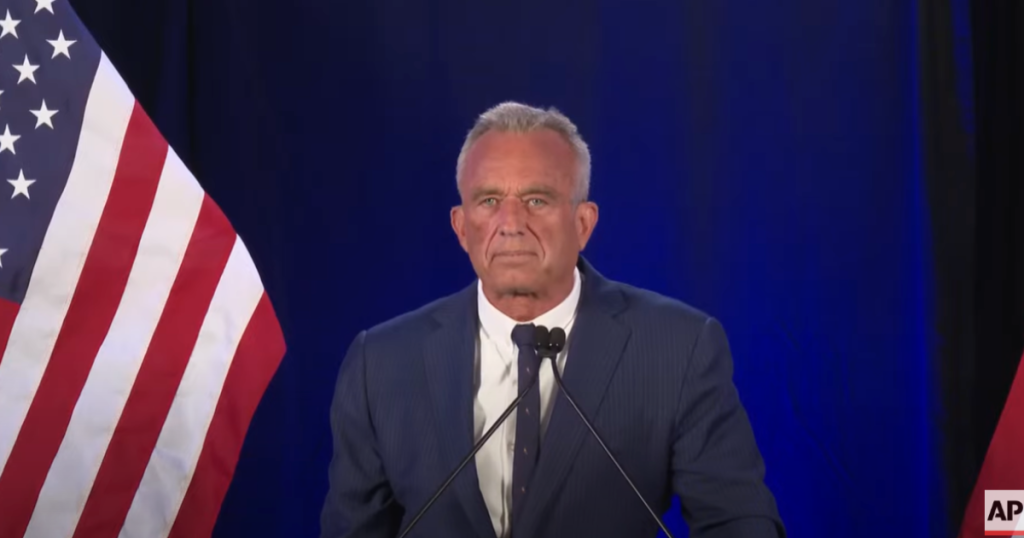In a major win for former independent presidential candidate Robert F. Kennedy Jr., a district court has ruled that Kennedy and his charity, Children’s Health Defense (CHD), can rightfully sue the Biden administration for allegedly working with Big Tech to censor their social media posts.
The Louisiana district court’s ruling comes after the Supreme Court, in a 6-3 majority vote, struck down a similar injunction in Murthy v. Missouri, ruling that plaintiffs lacked standing because they did not present sufficient evidence that the government engaged in unlawful actions.
In Murthy v. Missouri, the Supreme Court delivered a blow for the plaintiffs — two states and five social media users — who argued that the Biden administration was engaging in online censorship.
However, in Kennedy’s case against the federal government, U.S. District Judge Terry Doughty — a Trump appointee — ruled that the former independent presidential candidate and his “anti-vaccine” charity met the criteria for standing.
“The Court finds that Kennedy is likely to succeed on his claim that suppression of content posted was caused by actions of Government Defendants, and there is a substantial risk that he will suffer similar injury in the near future,” Doughty wrote in his decision.
The ruling included evidence shared by Kennedy and his charity that they were censored on social media platforms like Instagram, Facebook and YouTube as a result of requests by government officials to suppress their content, according to the Washington Examiner.
CHD general counsel Kim Mack Rosenberg lauded the district court’s decision, pointing out that its analysis led to the “correct conclusion with respect to standing for CHD and Mr. Kennedy.”
Rosenberg stressed that the court didn’t just validate the claims brought forth by the plaintiffs but also acknowledged the impact of the government’s actions regarding its ability to communicate with Big Tech.
Interestingly, Doughty’s ruling comes after the district judge barred contact between officials in the Biden administration involved in the Murthy case on July 4, 2023.
This decision came amid a lawsuit from Republican attorneys in Missouri and Louisiana.
In the High Court’s 6-3 majority opinion in Murthy, Supreme Court Associate Justice Amy Coney Barrett explained why the majority couldn’t find standing for the plaintiffs who claimed that their First Amendment rights were being violated by the government in the form of censorship.
“While the record reflects that the Government defendants played a role in at least some of the platforms’ moderation choices, the evidence indicates that the platforms had independent incentives to moderate content and often exercised their own judgment,” Barrett wrote on behalf of the majority.
Barrett and the majority said that plaintiffs in the Murthy case could not reach the basis for standing: “A threshold showing that a particular defendant pressured a particular platform to censor a particular topic before that platform suppressed a particular plaintiff’s speech on that topic.”
The court victory for Kennedy came after the former independent presidential candidate suspended his campaign and endorsed former President Donald Trump.
Shortly before endorsing the former president, Kennedy held a press conference, where he issued a scathing rebuke of the Democratic Party, accusing it of waging “continual legal warfare against both President Trump and myself.”
Source: Resistthemainstream






